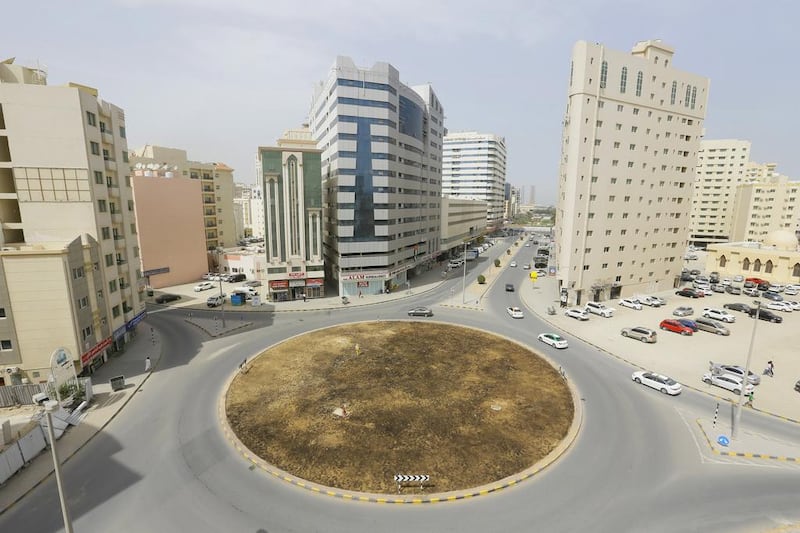Standing in the centre of a manure-filled roundabout, a lone gardener irrigates the soil.
It may not look much, but the space is one of the most interesting commissions from the 13th edition of the Sharjah Biennial (SB13), which opened earlier this month.
Titled Beej, the Urdu word for seed, the project began as an idea two years ago when Dubai-based artist Vikram Divecha was working with the municipal gardeners of Sharjah on another project where they shared their experiences.
“Almost every gardener working in Sharjah is a farmer from Pakistan,” he says.
“I was speaking to them about their skills and their potential to grow crops. They already work on sites where there is water, soil and facilities, so the only question was how could I open up a relationship between the land they cultivate over here and the land they left behind?” With this in mind, he conceived the Beej Project, which was commissioned by the Sharjah Art Foundation (SAF). He sent two farmers back to their homes in Pakistan and asked them to bring back seeds their families had saved for the next harvest.
Once the designated roundabout in Al Nabaah, Sharjah, is ready, these farmers will plant the seeds and tend to their crops. Eventually, Divecha hopes, they will create a kind of pick-your-own farm.
“I want the gardeners to feel ownership of this project as much as I do or SAF does,” he says, explaining he had no control over what kinds of seeds the farmers brought back.
“The most important thing about this is what this action and gesture means to the gardeners and how much they will take claim of the site in the future. Most of us won’t even be privy to that, but this is where the work will sit.”
Divecha makes use of existing spaces. In the past he rented a warehouse in Alserkal Avenue, Dubai, for use as an import and export hub for commercial businesses. In another project, he persuaded the Roads and Transport Authority in Dubai to uproot bricks from a bus stop and then have workers relay them in whatever fashion they saw fit. With Beej, the metaphors are rich: the seeds represent the farmers themselves who migrated here, settled and grew roots.
It is a theme relevant to most expatriates in the UAE. “There are many metaphorical interpretations, but there are also many actions happening in the real world,” says Divecha. “If you think about it, the roundabout is a site of convening and dispersal, and that is another important part of this. I want to know how the neighbourhood will react over time and also how much validation the people have, who owns the produce and to how the produce and seeds will seep into Sharjah. That is another invisible layer of the work.”
The work is also partly a study of informal economies, he says. “At the moment it is possible to find gaps out here and intervene at those points. Over time, the UAE will become more regulated and this kind of thing may not be possible. I am also interested in that aspect.”
• Tamawuj: Sharjah Biennial 13 runs until June 12. To find out more see www.sharjahart.org
aseaman@thenational.ae





